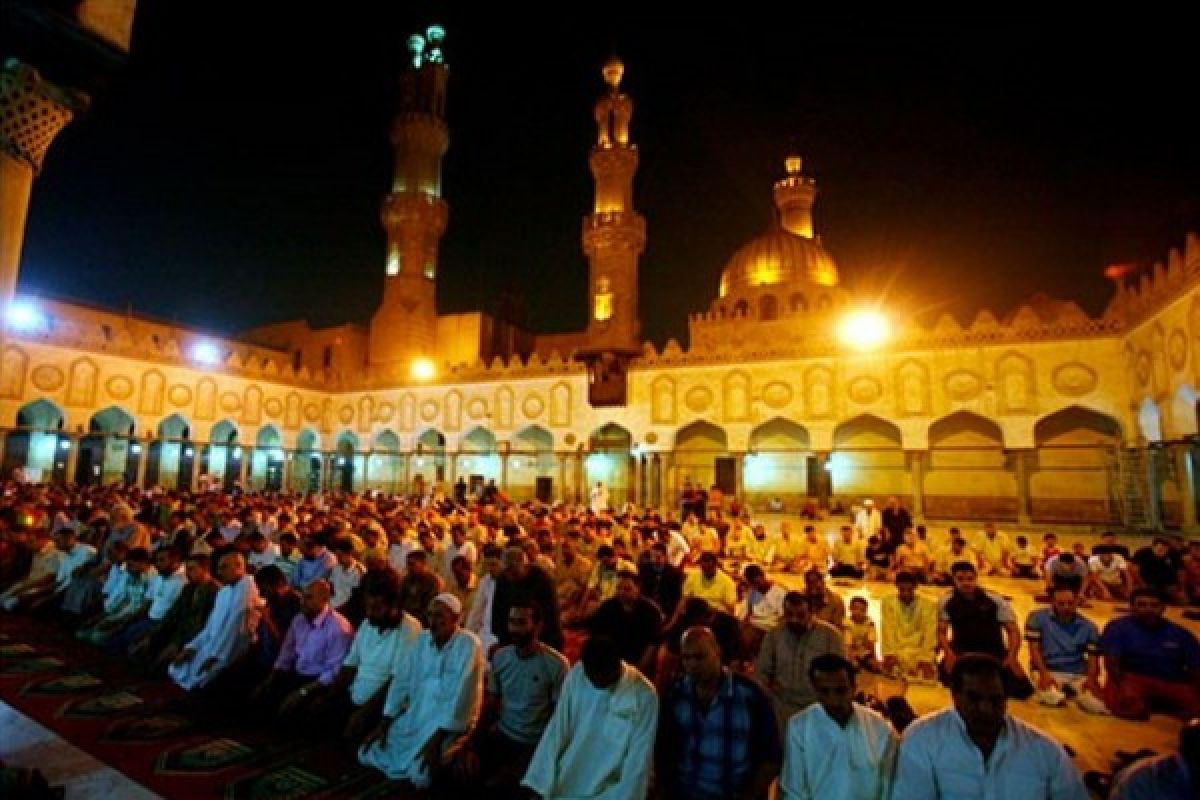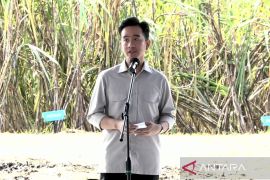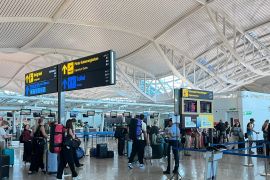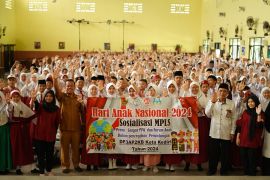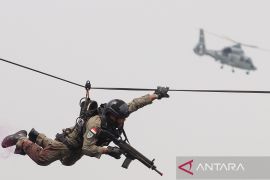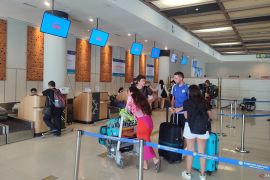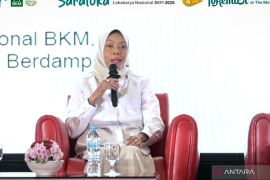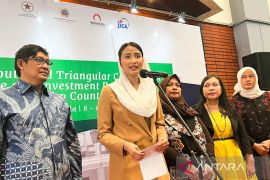Ramadan is a season of so many people and more selling."Cairo (Antara/Xinhua-OANA) - Throngs of people of all ages walk leisurely around the streets, local coffee shops are full of visitors; small traditional music bands sing and perform for the visitors and vendors are moving around selling gifts, balloons, toys and fireworks are coloring the sky.
This is the unique atmosphere outside Hussein Mosque opposite to Al-Azhar Mosque and near Khan el-Khalili bazaar for gifts and antiquities in old, original Cairo, which attracts thousands of Egyptians every night during the holy month of Ramadan to spend a quality time of entertainment with family and friends.
Ramadan is a holy month when Muslims fast from dawn to sunset, and so the sunset fast-breaking meal called "iftar" and the pre-fasting meal before dawn time known as "suhur" are very special for Egyptians during Ramadan. A lot of them go out after iftar to spend a good evening at one of Cairos traditional places until they have suhur and then they pray at one of the nearby mosques or go home.
"I am here tonight with my relatives to spend a good time and then have suhur here in unique Hussein area," said Israa Ahmed, a fresh university graduate in her 20s, adding "it is definite that the Hussein area is the best destination for people during Ramadan nights."
"The best thing I like about this area is the gathering of people. I am a culture college graduate, so I have been to many cultural places. But Hussein area is more distinguished with Ramadan aspects and atmosphere than other places," the young lady told Xinhua at one of the crowded coffee shops opposite to Hussein Mosque.
Islam al-Sharqawi, a 26-year-old lawyer who also studies Chinese at Confucius Institute, was sitting with a group of his friends at another coffee shop in Hussein Mosque area, said that it is a beautiful place where people can meet during Ramadan.
"In Ramadan in particular, families and friends gather despite life pressures, work and study that make it difficult for them to meet and spend good times in other days," the lawyer told Xinhua.
Hussein and Khan el-Khalili areas used to be crowded with Arab and Western tourists before the 2011 uprising that toppled former long-time Egyptian President Hosni Mubarak, which caused a recession in the area whose hundreds of gift stores and coffee shops depended mainly on foreign customers.
However, as security and stability are gradually being restored, sales in the area got much better than it was during the past five chaotic years, with most customers are Egyptians instead of foreigners especially during the holy month Ramadan.
"Ramadan is a busy month during which sales are better because the area is constantly crowded so chances for selling are bigger. The sales have surely been affected by the tourism recession, as we depended more on foreign customers. Now Egyptians customers are fine and things are getting better," said a salesman of a silver gift store in Khan el-Khalili who identified himself as Mohamed.
Mahmoud Hassan, a 16-year-old boy, has been moving from a coffee shop to another in the area, carrying a small stand displaying gifts and accessories like rings, rosaries, key holders and other accessories, offering visitors that they can have their names written on the gifts they buy.
"Ramadan is a season of so many people and more selling. We wait for this month from year to year because selling and working are better during Ramadan. For example, if I sell three or four key holders or gifts on a normal day, I can sell from 15 to 20 every night during Ramadan," the teen vendor told Xinhua.
The police vehicles can be seen everywhere at the corners of the area to secure the massive visitors and make sure the nights go smoothly without any disturbance to the atmosphere of joy and entertainment.
As for Walid, a waiter at one of the coffee shops outside Hussein Mosque, he says that thousands of visitors come to the area during Ramadan evenings because of the unique spirits encompassing the place during the holy month.
"In general, Ramadan is known in our business as a month for Egyptians. Even when things were better before the 2011 uprising, the main customer of the season of Ramadan is the Egyptian customer," the waiter told Xinhua, adding that "people come here not only from Cairo but from all over the country to enjoy this atmosphere."
Walid argued that more stability made things better, but not as good as the time when there were foreign tourists, stressing that "the Egyptian customer does not bring as much profit as the foreign customer, but things are getting much better than before."
Traffic congestion around Hussein Mosque and opposite Al-Azhar Mosque is to the prime during Ramadan evenings, especially on Thursdays and Fridays, as they are weekend eves in the most populous Arab country.
Located in old Cairo that is referred to as "the city of 1,000 minarets" due to the many mosques it has, and named after Prophet Muhammads grandson, the original structure of Hussein Mosque was built in Cairo in 1154 on the cemetery of Fatimid caliphs, but the current building was constructed in the 19th century.
"Hussein area is a historical place where people can breathe the scent of Ramadan especially in the summer, because people don t go out during a hot fasting day and prefer to go out for an entertainment evening after iftar until suhur," Ayman Ibrahim, a taxi driver in his 50s, told Xinhua at Al-Azhar Street in Hussein Mosque area.
Reporter: Mahmoud Fouly
Editor: Priyambodo RH
Copyright © ANTARA 2016
